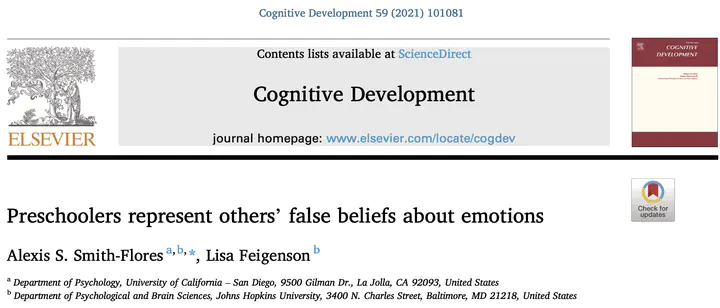Preschoolers represent others’ false beliefs about emotions

Abstract
The ability to track and explicitly report another person’s beliefs about the world, even when those beliefs conflict with reality, is a milestone that children typically attain between the ages of 3 and 5 years. The majority of work investigating the development of false belief representation has probed children’s ability to track beliefs about tangible entities, such as an object’s location. However, false beliefs are not content specific. They can be about anything that can be repre- sented, including entities that are not directly observable — like others’ emotions. Across two experiments (N = 160), we tested 3- to 5-year-old children’s ability to track a person’s false beliefs about an object’s location, versus about an agent’s emotional state. Our findings reveal parallel developmental progression across the two content types. Our findings suggest that over the preschool years, young children likely come to represent false beliefs about any content that they themselves can represent.